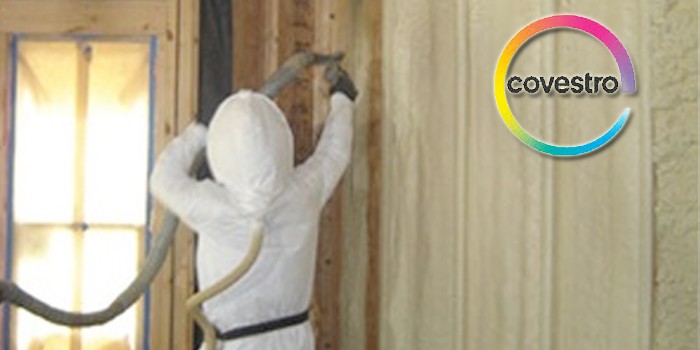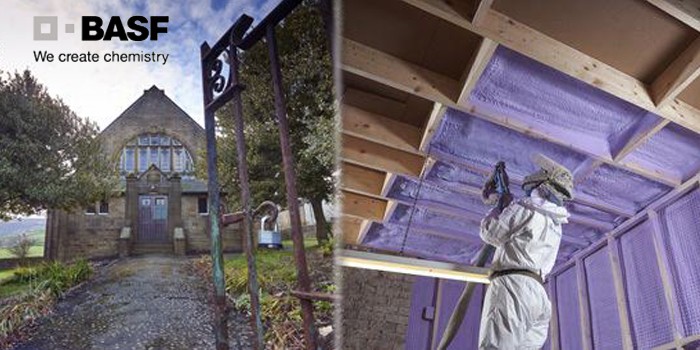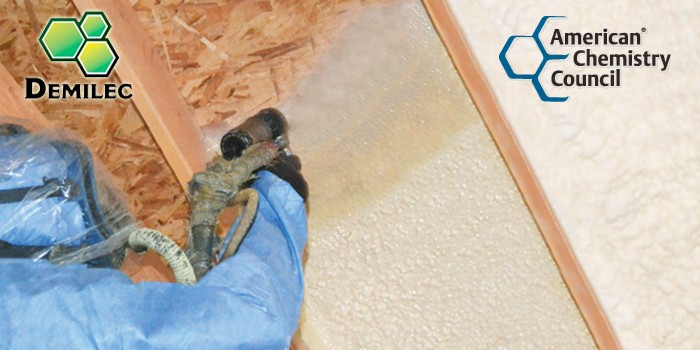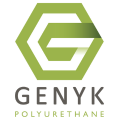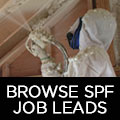Spray Foam Insulation and NCFI® - Help Protect our Children's Health in School

November 11, 2008 - Mount Airy, N.C., - NCFI Polyurethanes announces a major corporate initiative, www.HS4HC.com, to help make every new school being built, and those being renovated, healthy environments for our children by educating architects, builders, school boards, administrators, superintendents, principals and teachers about the dangers of mold and the simple ways they can prevent it.
“We are making 2009 the year of healthier schools,” says Nelson Clark, Senior Vice President. “We are dedicating our staff to an internal program we are calling Healthy Schools for Healthy Children that involves informing and working with the building and education communities to make schools safer and healthier for every child by inhibiting the dangerous growth of toxic mold.”
“According to the Center for Disease Control (CDC), as many as 1,000 species of mold have been found in our homes,” states Clark. “Mold spores come into buildings on the air or attached to clothing and there is nothing any of us can do to prevent that. But, what we can do is deny mold what it needs to grow and become dangerous—moisture, and we are experts at keeping out moisture!”
When mold grows out of control in a classroom and school environment it releases spores which are breathed in by all children. According to Ruth Etzel, M.D., former chairwoman of the Committee on Environmental Health of the American Academy of Pediatrics, “Children are more susceptible to mold-related illness than adults, because their lungs and other organs are still developing.”
The problem of mold in school buildings is not a new concern. According to a Government Accounting Office (GAO) report, 20 percent of the country’s 80,000 public schools have indoor air quality problems. According to the report, “Microbiological contaminants—particularly molds—account for half of indoor air health complaints. That means as many as 7,500 public schools have indoor air problems related to mold.” There is no way of really knowing how many more schools have undiscovered mold problems.
What is known is that mold in schools makes children very sick. Exposure to mold produces diverse symptoms—fatigue, eye irritation, respiratory problems, nausea, headaches—and can lead to more severe illnesses like Asthma, Organic Dust Toxic Syndrome with an abrupt onset of fever, flu-like symptoms, and respiratory symptoms—and pulmonary hemorrhages and hemosiderosis—bleeding of the lungs.
The company believes most, if not all, of the nation’s public schools can be made healthier by paying more attention to the building’s envelope—the exterior walls, roof, and insulation. “If we start at the point where moisture enters the building, we can put up a barrier—a flak jacket of sorts—against moisture, and, without moisture mold cannot live and grow,” adds Don Schumacher, Director of Marketing. “Our product, InsulBloc®, is polyurethane foam applied during construction of new schools to exterior walls—masonry block, concrete, stone, etc.—or onto the interior for extreme retrofit of older buildings. The liquid foam enters every crack, expands, cures in place, and forms a seamless membrane that seals and insulates the building against moisture. We make another product that does the same for roofs and we’ve been using them successfully for many years in all kinds of buildings from homes to commercial buildings and even schools. We know it works! Now, we’ve got to convince the people designing and building schools that it is the best way to keep mold from harming our children. Whether they choose our product or another, spray polyurethane foam will block moisture and prevent mold. It will go a long way toward making our schools healthier and our children certainly deserve that.”
According to Clark, “It can also save schools money. InsulBloc® spray foam insulation is a safe moisture barrier system that contains no ozone depleting chemicals and contains renewable agricultural products like sugar beets and corn. It’s safe, long-lasting and even allows schools to focus their limited maintenance budgets on things like HVAC upkeep—another major point at which moisture enters buildings and collects—rather than extremely costly wall repairs or replacement.
The program will include free educational materials and an informational web site. “We hope to expand the program to include other companies and individuals—architects, contractors, facility managers, school personnel— who truly care about the health of our children and are willing to make the right choices to ensure we provide Healthy Schools for Healthy Children.”
###
About NCFI
NCFI was organized in 1964 by research chemist, Dr. H. W. Bradley and Barnhardt Manufacturing Company. NCFI is headquartered in Mount Airy, NC and manufactures polyurethane foam chemical systems for spray foam-in-place insulation commonly referred to as SPF, roofing, marine floatation, packaging, specialty molding, and many other uses. NCFI has other manufacturing plants in High Point and Hickory, North Carolina, in addition to Dalton, Ga., and Salt Lake City, Utah. To learn more about HS4HC visit www.HS4HC.com, for more information about NCFI please visit www.NCFI.com.
For follow-up information or to schedule an interview, please call Dale McGlothlin at (202) 341-8615.
Disqus website name not provided.




